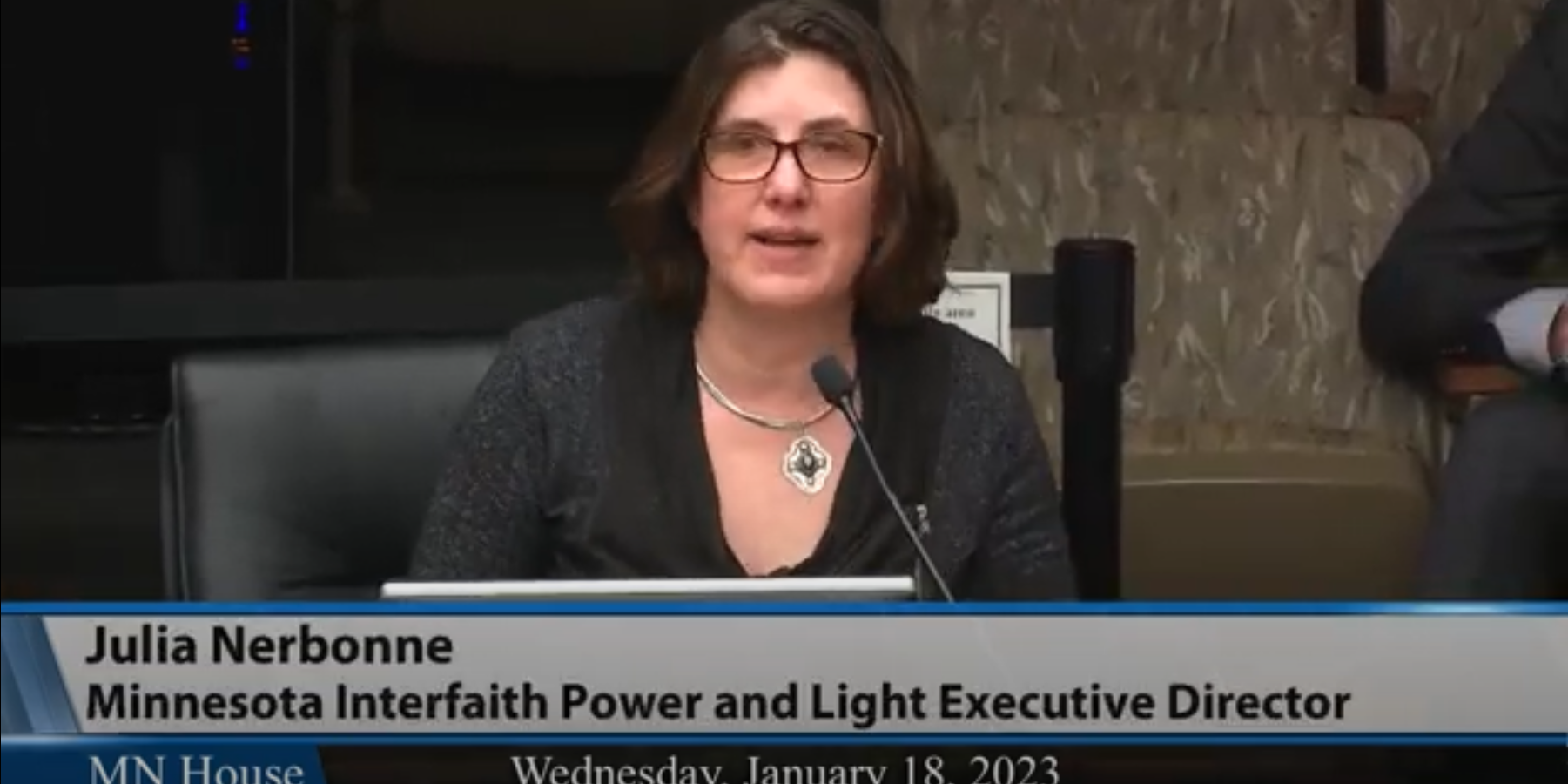Update on the 100% Clean Electricity by 2040 Bill
Written by Sara Wolff, MNIPL Strategy Policy Director
On January 18, 2023, the Minnesota House Climate and Energy Finance and Policy Committee heard HF7, the 100% clean electricity by 2040 bill. It passed out of the committee.
MNIPL has mixed feelings about the bill. Of course, we’ve been working for the past 5 years to pass such a bill, and so we are thrilled to have that possibility within reach. The work by so many of MNIPL’s community over this time is why we are here today. Thank you.
However, in just the last 36 hours, concessions were made via an amendment from the bill’s author that are disappointing. MNIPL’s Executive Director, Julia Nerbonne, testified before the House Committee and spoke to these truths:
1) Excluding the 100% bill and its provisions from being considered in permitting currently underway at the PUC for the Nemadji Trail Energy Center (NTEC)
NTEC is a proposed new gas plant in Superior, Wisc., just across the bay from Duluth. MNIPL and allied organizations, particularly in northeastern Minnesota, have been fighting this proposal for years. Building a new gas plant during a climate crisis doesn’t make sense, especially when it will increase energy costs for residents of Duluth and the surrounding region.
Utilities profit from the infrastructure they build—all while communities bear the burden of the fossil fuel plant’s pollution. Bret Pence, MNIPL’s Greater Minnesota Director, has done an amazing job tracking, organizing, and engaging to oppose this plan over many years.
While the exception offered in the amendment doesn’t mean the gas plant necessarily will be built, it removes a potential assist, right when Duluth and the region could have used one. This feels like we’re leaving some communities behind.
2) Grandfathering in existing large-scale hydro as “renewable”
This is another gift to utilities. Large hydro was purposely not deemed renewable when the original law was passed in 2007 in recognition of the harm these projects do to the environment, such as injuring ecosystems and contaminating water supplies in Indigenous communities while the power is shipped elsewhere. Because of these injustices, the power wasn’t allowed to count as renewable. With this amendment, now it will be.
This bill is big. It is important. It is not on an easy road.
And we are reminded that our work is so far from over.
This session is just beginning.
Join us in ushering in a new world during this historic moment for Minnesota. Learn more and advocate for the 2023 Indigenous Rights and Climate Justice Platform.

